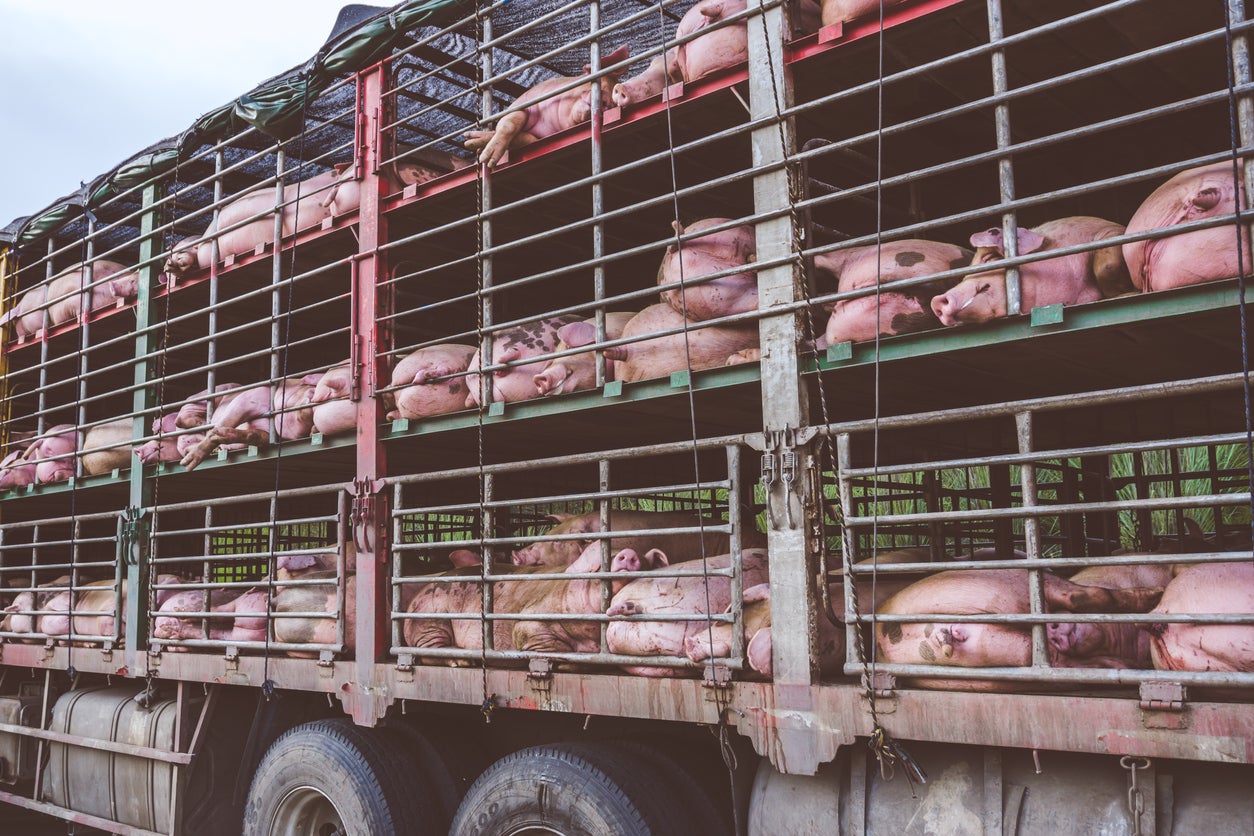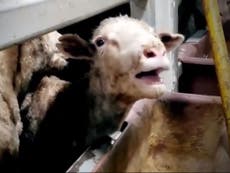Why I can’t support the government’s proposed plan to ban the live export of animals
George Eustice has announced plans to ban the export of live animals from England and Wales – this doesn’t go nearly far enough


Your support helps us to tell the story
From reproductive rights to climate change to Big Tech, The Independent is on the ground when the story is developing. Whether it's investigating the financials of Elon Musk's pro-Trump PAC or producing our latest documentary, 'The A Word', which shines a light on the American women fighting for reproductive rights, we know how important it is to parse out the facts from the messaging.
At such a critical moment in US history, we need reporters on the ground. Your donation allows us to keep sending journalists to speak to both sides of the story.
The Independent is trusted by Americans across the entire political spectrum. And unlike many other quality news outlets, we choose not to lock Americans out of our reporting and analysis with paywalls. We believe quality journalism should be available to everyone, paid for by those who can afford it.
Your support makes all the difference.As a vegan who cares about animals, I don’t support the idea of “animal welfare”. Killing animals in Britain rather than abroad isn’t a victory in any meaningful sense, so I won’t be celebrating the government’s much-publicised plans to ban the export of live animals for fattening and slaughter.
Clearly, live export is a hideous and cruel practice. Every year, nearly two billion farmed animals worldwide are loaded onto trucks or multi-decked ships and sent on agonising journeys that can take days and sometimes weeks.
They call it livestock when their stock is living creatures, and it’s big business. During 2017 alone, Turkey imported 567,000 cows from Brazil and Uruguay. Pigs have been flown from Britain to China. Think about how terrified these animals must have felt.
Live exports are often delayed at the ports and borders, meaning animals are left in cramped, hot vehicles for hours or even days on end, panting with heat exhaustion and thirst as they stand among their fallen brethren and in their own faeces. People who (rightly) judge others for leaving their dog in the car for 10 minutes on a hot day often happily eat the corpses of animals who were packed into industrial trucks for weeks.
Millions of animals die during these hellish journeys – long, agonising deaths from heat stress and other horrors. Last year, 14,000 sheep were drowned when the boat they were being transported on capsized. What a racket the meat industry is. As a vet who inspects live export trucks and ships put it: “Live export is modern slavery.”
Now, the environment secretary, George Eustice, has announced plans to ban the export of live animals from England and Wales for slaughter and fattening. Eustice says he wants to “ensure that animals are spared stress prior to slaughter” and position our country as “a world leader on animal welfare”.
But what sort of leadership is this? And what sort of animal lover would be placated by such a feeble change, in the context of what else we know goes on?
I’m not at all satisfied by a ban on live export. In fact, Eustice’s boast that he will “spare” animals some of the stress involved in being killed seems extraordinary to me. Who is Eustice, or any human, to spare animals from any form of cruelty? And how messed up must someone be to brag about making it a little bit nicer for the innocent creatures who’ll still live in horrendous conditions and be killed in horrendous conditions, just with a shorter journey in between?
The government’s plan is being credited to Boris Johnson’s partner, Carrie Symonds, who is a patron of the Conservative Animal Welfare Foundation, which has long lobbied for an end to live exports. But I’m not interested in meat eaters’ ideas of animal welfare, Tory or otherwise. Breeding animals in order to kill them for profit will always be wrong. The people who buy this meat will always have blood on their hands.
Just as human rights can often be twisted and curtailed, so can any rights given to animals. That’s why I prefer the term “animal liberation” – the belief that every animal has an immediate right to freedom, which morally usurps any law that claims otherwise.
As the philosopher Peter Singer wrote in his landmark book, Animal Liberation, animals do not require equal treatment but deserve equal consideration. Laws are useless without a shift in consciousness, too. Liberation can only be achieved when, as well as legally recognising the oppressed as equal, we also recognise it socially and in our hearts, and all behave accordingly.
Banning live export before slaughter won’t stop the intensive breeding or slaughter or change the fact that 73 per cent of farmed animals in the UK are kept in factory farms. So “animal welfare” is a disingenuous get-out clause for those who wish to carry on exploiting and killing animals while telling themselves they are decent people. It’s a phoney philosophy that is more about the ego of humans than the experiences of animals.




Join our commenting forum
Join thought-provoking conversations, follow other Independent readers and see their replies
Comments